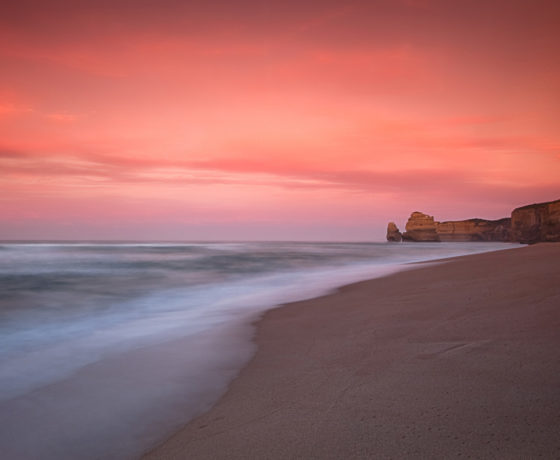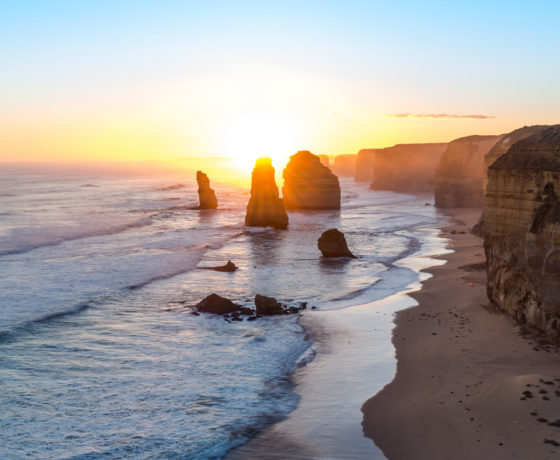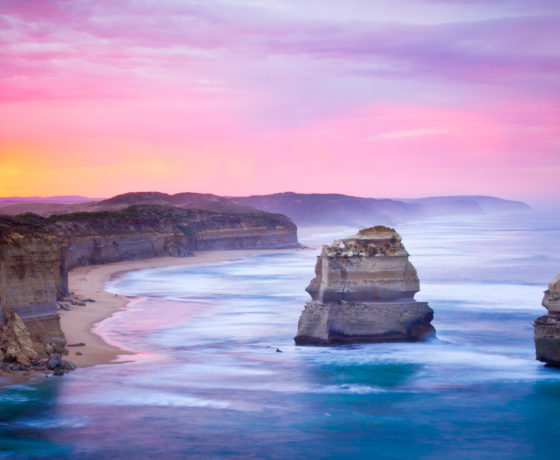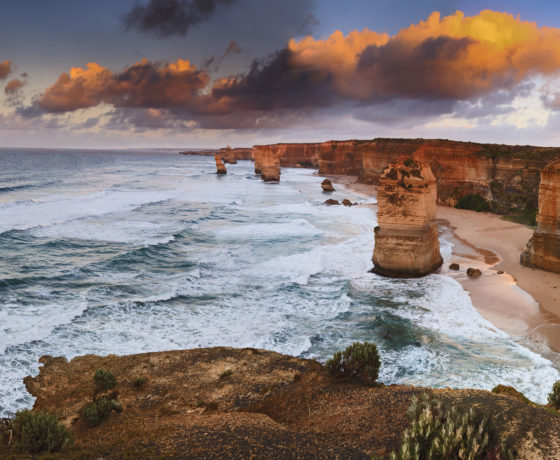
The sheer scale of the 12 Apostles offshore stacks are most breathtaking at this point. Many of you will have seen countless photos and images; nothing will prepare you for the grandeur of this icon…
THE TWELVE APOSTLES
WELCOME TO THE WILD HEART OF THE GREAT OCEAN ROAD.
SO WHAT CAN I EXPECT TO SEE AT THE 12 APOSTLES?
Early charts refer to the 12 Apostles as the Sow and Piglets. The Sow refers to Mutton Bird Island which is viewable from Loch Ard Gorge and the Piglets were the surrounding rock formations to the east. When Superintendent C..J. La Trobe passed through this area in 1846, his chart reflected this name. The rocks are collectively known as the 12 Apostles and are not individually named after the biblical Apostles. In living memory the 12 Apostles have always been a part of local vernacular. It is consistent in its biblical naming with other local formations like Gog and Magog located at Gibson Steps and the Grotto.
At first glance you will see 7 rock stacks to the west with the rest hidden by headlands and obscured by other stacks. To the east are a further two rock stacks referred to in local vernacular as Gog and Magog. These two rock stacks are viewable from beach level via a car park 1km to the east of the 12 Apostles. The small car park is often at capacity and visitors are advised they can walk safely via the Great Ocean Walk on a 1.1 km (2.2km return) trail that leaves from the south side of the Twelve Apostles Visitor Facility.
OTHER ATTRACTIONS AROUND THE 12 APOSTLES
While anytime of the day provides a great spectacle, sunrise and sunset are particularly impressive for the blazing hues created. A visit to the 12 Apostles begins at the 12 Apostles Visitor Centre. The parking area is designed to cater for the 1.2 million visitors annually that enjoy the site. A tunnel takes people under the Great Ocean Road to extensive boardwalk and viewing platforms.
SEND AN EMAIL ENQUIRY
If you just want to make an email enquiry, PLEASE fill in the form below and we will get in touch with you as soon as possible to answer any questions regarding this attraction.





